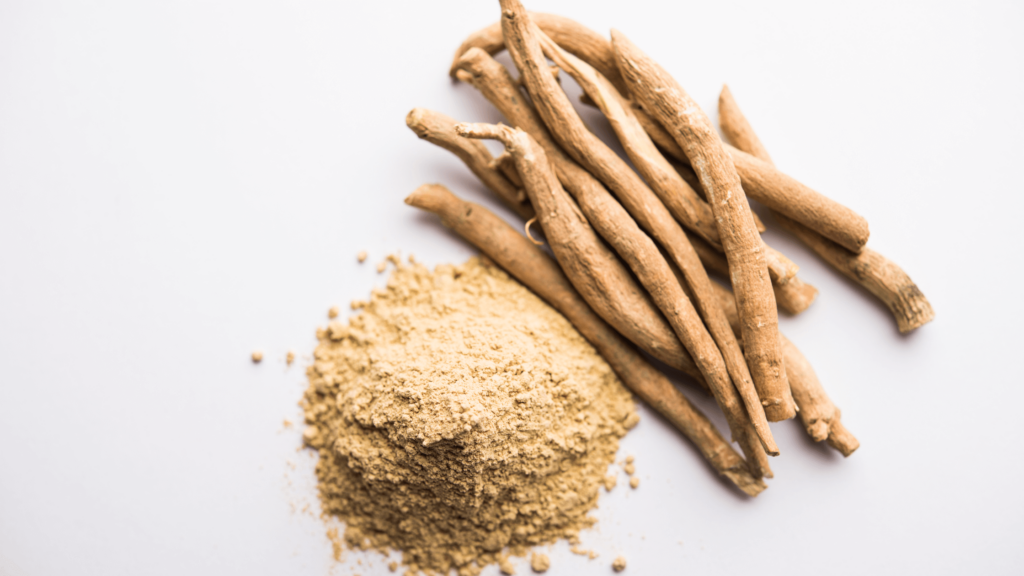In today’s demanding work environment, trade workers struggle to find work-life balance, leading to mental stress and anxiety that are hard to control. Workers are turning to natural remedies to combat the mental and physical stress of the daily grind. One powerful remedy gaining popularity is ashwagandha, an herb used in traditional medicine for centuries. Whether it’s reducing cortisol or improving sleep, ashwagandha has several powerful effects on the body and mind. Anyone under stress should consider it.
Quick look
- High-pressure jobs in construction, engineering, and architecture drain energy, increase stress, and disrupt sleep, leading to burnout and lower performance.
- Ashwagandha improves sleep, sharpens memory, balances blood sugar, and boosts physical endurance, improving several areas of health.
- Ashwagandha reduces mental and physical stress, helping construction, engineering, and architecture professionals stay resilient under pressure.
- Ashwagandha comes in capsules, powders, teas, and gummies, offering a variety of ways to take it.
- While generally safe for short-term use, long-term consumption is currently not recommended as scientific evidence is lacking for efficacy.
What is ashwagandha?

Ashwagandha is a small evergreen shrub that grows in India, the Middle East, and parts of Africa. Its roots and berries are used to make medicine. In traditional Indian medicine, Ayurveda, ashwagandha is considered a powerful adaptogen. Adaptogens are natural substances that help the body adapt to stress and maintain balance. They work by supporting the adrenal glands, which produce hormones like cortisol that regulate stress responses. By modulating these hormones, adaptogens like ashwagandha can help improve the body’s resilience to stress.
Health benefits of supplementing with ashwagandha
Improves athletic performance
Feeling physically drained or struggling to build endurance can limit athletic performance. Ashwagandha could be your way to improve physical performance in several physical markers. A controlled study found that athletes and active adults who took ashwagandha significantly improved muscle strength, endurance, and recovery. Another study showed increased VO2 max (a measure of cardiovascular fitness), allowing participants to work out harder and recover faster. Whether you’re a professional athlete, working in the trades, or just trying to stay active, fast recovery and increased endurance can help you endure the most challenging weeks.
Enhances sexual function
Low libido and sexual dysfunction can negatively affect relationships and self-confidence. These issues are often linked to stress, hormonal imbalances, or general health concerns.
Ashwagandha may help improve sexual function in both men and women. Studies show that women who took ashwagandha experienced increased arousal, lubrication, and satisfaction. In men, it has been linked to higher testosterone levels and better sperm quality, supporting fertility and overall sexual health.
Supports heart health
Heart health is vital, especially for those with physically demanding jobs or high-stress lifestyles. Poor cardiovascular fitness increases the risk of heart disease and reduces stamina.
Ashwagandha has been shown to improve heart health by increasing VO2 max levels—the maximum amount of oxygen your body can use during exercise. Higher VO2 max is linked to better endurance and stronger heart function, helping you stay active and healthy.
Supports sleep
Struggling to fall or stay asleep is common, especially for those juggling demanding work and personal responsibilities. Poor sleep or sleep deprivation can affect mood, focus, and physical performance on the job. Ashwagandha may offer a natural solution. In a double-blind, randomized study, participants who took 300 mg of ashwagandha root extract twice daily experienced significantly better sleep quality compared to those taking a placebo. They fell asleep faster, slept longer, and woke up feeling more rested. Researchers believe ashwagandha helps by lowering cortisol levels—a stress hormone that can interfere with sleep.
Enhances memory
Memory lapses and brain fog can be frustrating, whether you’re trying to stay sharp at work or manage daily tasks. These cognitive struggles often stem from chronic stress or aging.
Ashwagandha may improve brain function and memory. One study showed that adults taking ashwagandha extract for eight weeks demonstrated significant improvements in memory, attention, and information processing speed compared to a placebo group. These effects are linked to ashwagandha’s antioxidant properties, which help protect nerve cells from damage.
Promotes blood sugar regulation
Blood sugar spikes and crashes can drain energy, increase hunger, and, over time, contribute to serious health issues like diabetes. Keeping blood sugar stable is essential for sustained energy and long-term health. Studies suggest that ashwagandha can naturally support blood sugar control. It has shown the ability to lower blood glucose levels by improving insulin sensitivity and boosting insulin production. This makes it a promising supplement for individuals managing diabetes or prediabetes. However, further studies are needed to build on its efficacy.
Ashwagandha and stress: Does it work?

Stress is more than just feeling overwhelmed—it can wear down the body and mind in ways that impact every part of life. This pressure is even greater for people in architecture, engineering, and construction (AEC). Long hours, tight deadlines, and the constant need to problem-solve create an environment where physical exhaustion and mental fatigue are part of the daily routine. Over time, this nonstop stress can lead to burnout, anxiety, and even physical health problems.
Ashwagandha may offer a natural solution to managing these layers of stress. As an adaptogen, it helps the body handle internal and external stressors by regulating the production of cortisol—the body’s primary stress hormone. High cortisol levels over long periods can lead to fatigue, irritability, poor concentration, and even weight gain. In clinical studies, ashwagandha has been shown to significantly lower cortisol levels, helping people feel calmer and more balanced. For those in high-pressure jobs, here are some of the ways ashwagandha can help:
- Physical stress: Boosts endurance and speeds up muscle recovery, reducing fatigue.
- Mental stress: Lowers cortisol levels to improve focus and mental clarity.
- Emotional stress: Calms the nervous system, reducing anxiety and stabilizing mood.
For AEC professionals, where the physical, mental, and emotional demands are constant, ashwagandha offers a natural way to build resilience across all fronts. However, before taking this natural supplement, it’s important to consider the safety, potential side effects, and frequency protocols.
Safety and side effects of ashwagandha
Ashwagandha is generally considered safe for short-term use, but it’s important to understand appropriate dosages, potential side effects, and when to discontinue use. Most recommendations range from 250 mg to 600 mg of ashwagandha extract daily, typically divided into two 300 mg doses daily. Another factor to consider is that ashwagandha is commonly used for only up to three months; the safety of long-term use is not well established.
Potential side effects
While many people tolerate ashwagandha well, some may experience side effects, including:
- Gastrointestinal issues: Stomach upset, diarrhea, nausea, or vomiting.
- Drowsiness: Ashwagandha may cause drowsiness in some individuals.
- Headaches: Some individuals experience headaches, possibly due to changes in hormone levels or blood pressure.
- Liver concerns: Although rare, there have been reports linking ashwagandha to liver injury if taken in excess and past the three-month mark.
- Hormonal effects: Due to its impact on hormone regulation, ashwagandha may affect menstrual cycles or fertility in some individuals. It’s generally not recommended to be taken while pregnant.
- Low blood pressure: Ashwagandha can lower blood pressure, which may cause dizziness or lightheadedness if you already have low blood pressure.
If you experience any of these side effects, it’s important to stop using it and consult a healthcare provider. It’s also recommended that you stop using it after three months and assess your body’s response.
What’s the best way to take ashwagandha?
Ashwagandha is available in various forms, each offering unique advantages and considerations.
- Capsules and tablets: These are convenient and provide a precise dosage, making them popular choices for many users.
- Powders: Ashwagandha powder can be mixed into beverages or foods, offering flexibility in consumption. However, some may find its taste less palatable.
- Gummies: Flavored gummies are an alternative for those who prefer a more palatable option, especially if swallowing pills is challenging.
- Teas: Ashwagandha-infused teas are available for those who enjoy herbal beverages, though the concentration of active compounds may vary.
The timing of ashwagandha consumption can also impact its effectiveness. For example, taking it in the morning may help improve energy, focus, and mental clarity throughout the day, making it suitable for trade workers with demanding work schedules or management roles with high cognitive workloads. Conversely, consuming ashwagandha in the evening may be better for those looking to relax and improve sleep quality due to its natural calming properties.
Regardless of the form or timing, ashwagandha is generally recommended with a meal. Consuming it alongside food helps reduce the risk of stomach discomfort and enhances the absorption of its active compounds. Since fat can improve the bioavailability of certain herbal supplements, pairing ashwagandha with a balanced meal that includes healthy fats may maximize its benefits.
Ultimately, the best way to take ashwagandha depends on your health goals and lifestyle. Choosing a form and timing that fits into your daily routine while paying attention to how your body responds can help you experience its full range of benefits.
Bottom line
Whether working hard on the construction site or developing a plan in the office, ashwagandha helps you manage stress, sleep better, and stay focused longer. It’s a powerful adaptogen that helps your body regain control over stress and rebalance. Whether you take it as a capsule, powder, tea, or gummy, pick the form that fits your routine.
Like what you’re reading? Subscribe to our newsletter and follow us on social media for more simple and effective health tips!


